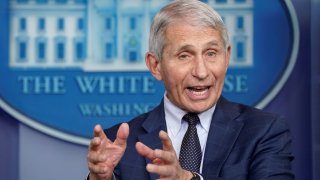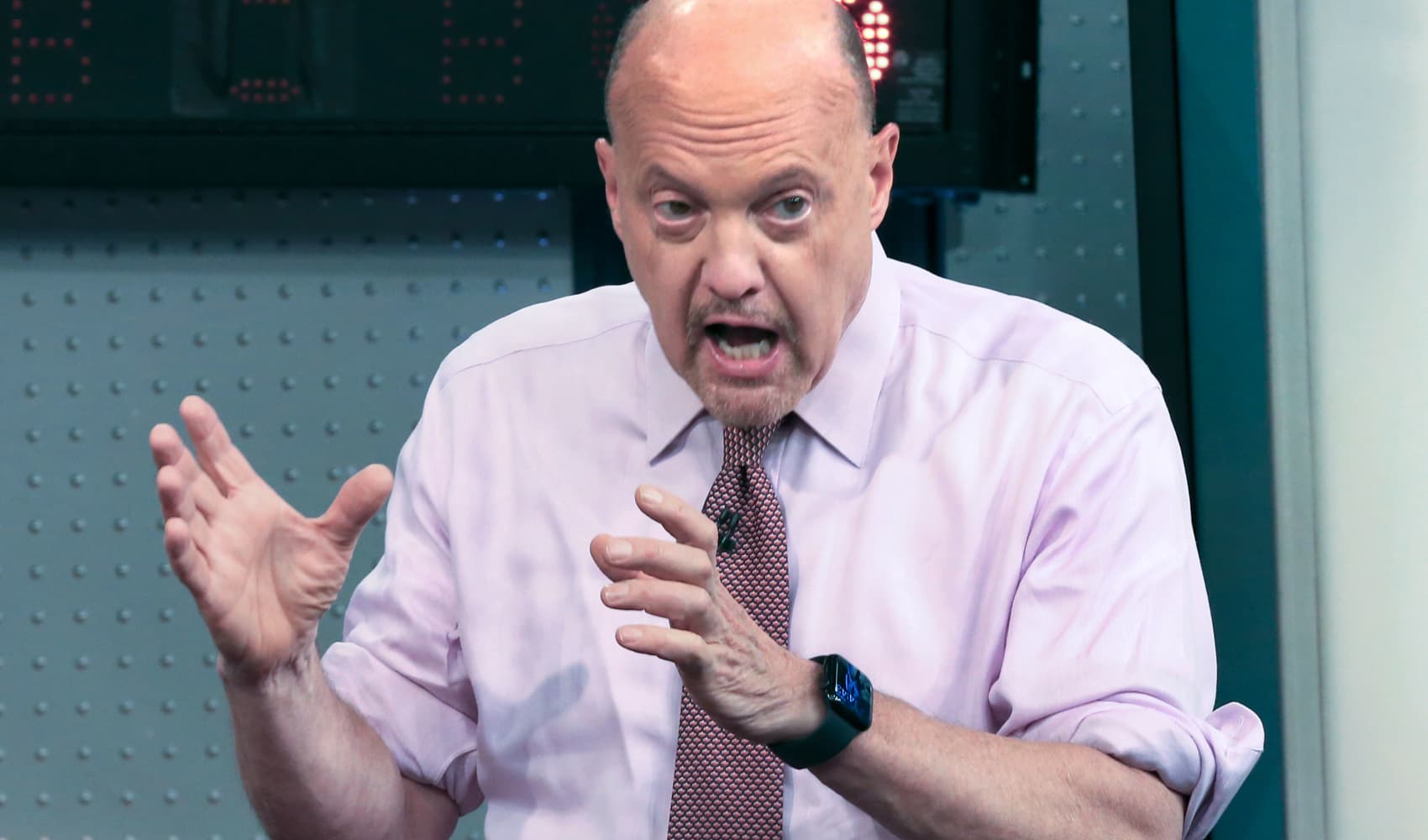
- White House chief medical advisory Dr. Anthony Fauci said small New Year's Eve gatherings with family and close friends are low risk if everyone at the gathering is vaccinated and boosted.
- New York City has imposed a capacity limit of 15,000 people on its annual celebration at Times Square.
- Los Angeles has cancelled plans for a live audience at its New Year's Eve celebration, choosing to stream it instead.
- London, Paris, Rome, Tokyo and other cities around the world have also called off events.
White House chief medical advisor Dr. Anthony Fauci on Wednesday said Americans should avoid large New Year's Eve parties as the highly transmissible omicron variant drives U.S. Covid cases to their highest levels of the pandemic.
However, Fauci said small gatherings with family and close friends are low risk if everyone at the gathering is vaccinated and boosted if they are eligible.
"If your plans are to go to a 40-to-50 person New Year's Eve party with all the bells and whistles and everybody hugging and kissing and wishing each other a Happy New Year — I would strongly recommend that, this year, we do not do that," Fauci said during a White House update on the pandemic.
Get a weekly recap of the latest San Francisco Bay Area housing news. Sign up for NBC Bay Area’s Housing Deconstructed newsletter.
His comments come as cities scale back their New Year's Eve festivities. New York City has imposed a capacity limit of 15,000 people on its annual celebration at Times Square.
The event normally draws 58,000 people. All attendees are required to provide proof of vaccination.
Los Angeles has canceled plans for a live audience at its New Year's Eve celebration, choosing to stream it instead. London, Paris, Rome, Tokyo and other cities around the world have also called off events.
Money Report
Fauci said it is now "incontrovertibly" clear that omicron is highly transmissible. Covid infections nationwide have reached a pandemic high, a seven-day average of more than 265,000 new cases per day, according to data from Johns Hopkins University. The previous high mark was 252,000 average daily cases on Jan. 11, 2021, before vaccines were broadly distributed.
Dr. Rochelle Walensky, director of the U.S. Centers for Disease Control and Prevention, said omicron has largely driven the rapid increase in Covid infections. However, Walensky noted that hospitalizations and deaths have not increased at the same rapid pace, for now.
Fauci said all indications so far suggest omicron causes milder illness compared to the delta variant, which was the predominant strain in the U.S. during the fall. He cautioned, however, that it's unclear whether pre-existing immunity is resulting in milder infections, or if the omicron variant is inherently less virulent than delta. Fauci warned that even if omicron is less severe, the variant could still strain hospital systems around the country simply by spreading quickly.
Omicron came to the world's attention just as the busy holiday season got underway in the U.S. over Thanksgiving. The variant has swept the U.S. since then, casting uncertainty over many people's plans to gather with family and friends.
Americans have rushed to get tested over the holidays, overwhelming a supply chain unprepared for the surge in demand. Pharmacies are struggling to keep at-home tests in stock, lines at clinics are sometimes hours long in cities such as New York and manufacturers are struggling to produce enough tests.






